The Gen Z Kids Behind the Busiest Matcha Café in Portland
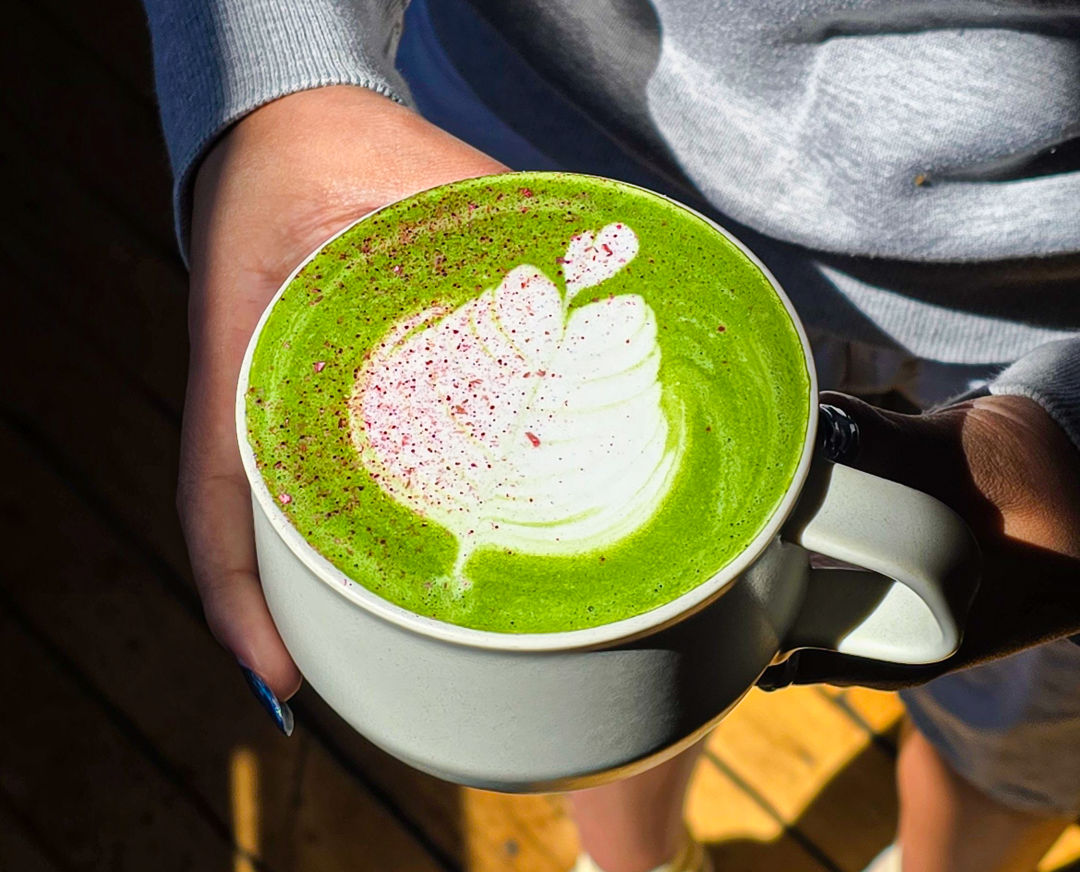
A spike in matcha popularity has recently created a global shortage of the Japanese green tea. This spring, the hype hit Portland in the form of two matcha-focused cafés.
The third time I tried to visit Project Matcha, a café that opened in May on NE Couch Street, I decided to brave the line. The dozens of folks snaking down the sidewalk had scared me off weeks earlier, and an ice machine mishap had forced the shop to close when I’d tried again. But on a recent Wednesday morning, I caught an Instagram story announcing the shop was opening late, at 1pm, to catch up on prep work. Hoping for a shrunken line, I showed up at 10 till, only to find some 50 people who’d had the same idea.
“I wonder if they planted the first lines,” one person dressed in office clothes said to another (they gave up 30 minutes later). “I wonder if it’s just the hype,” a woman in a hijab, who had a Labubu bag charm, asked her friend (they stuck it out). Also waiting for matcha lattes and “coconut cloud” drinks they’d no doubt ogled on the internet: senior citizens; a baby and its young parents, in matching aerodynamic sunglasses; teenagers on summer vacation.

TikTok fame brought a seemingly endless line to Project Matcha, where each drink is hand whisked in a traditional ceramic vessel.
Approaching the door, 45 minutes in, I overheard a twentysomething in an Ed Hardy by Kim Petras hat list their favorite places serving the Japanese green tea in Portland. They mentioned a few coffee shops that go the extra mile, as well as Yunomi, another matcha café that opened in town this spring, before concluding, “Now this is here,” smiling as if waiting an hour for a beverage was no biggie.
Matcha certainly isn’t new to the US market. Häagen-Dazs launched a flavor in the ’90s. Celebrities praised the tea’s wellness benefits in the 2010s. You can find something like matcha in nearly every coffee shop today. But as of the past year or so, you’d also expect to find a few matcha-specific cafés in most cities. In fact, the recent spike in demand caused a global matcha shortage, driving up prices and leaving some shops matchaless. When Zohran Mamdani went on the internet show Subway Takes, campaigning to become New York City’s next mayor, host Kareem Rahma wanted to know, “What are you gonna do about the price of matcha lattes?”

Josh Pak (left) and Purin Moungvang opened Project Matcha this spring after realizing the city lacked a devoted matcha café.
Portland has had options for years: the more traditional Japanese lunch spot Behind the Museum Café, Korean bakery and coffee shop Soro Soro, and soft-serve chain Matcha Cafe Maiko all have their unique takes on matcha. But before Project Matcha and Yunomi, there was a dearth of shops catering to the current boom for matcha lattes that are only slightly dressed up—places that present like specialty coffee shops but serve single-origin matcha instead of espresso.
I met owners Purin Moungvang, 22, and Josh Pak, 25, at Project Matcha a few days later, an hour before the café opened. Five different people tried to come in while we chatted (“we’re open at 11”), and a dozen or so were dutifully lined up outside the polished, minimalist café by the time I left.

Project Matcha’s menu showcases tea directly sourced from Kyoto, Japan, but the café isn’t afraid to dress it up with strawberry purée.
“Social media—the craze is crazy right now for matcha,” Moungvang told me. “Everybody’s just going insane for it.” The café was his idea. Pak worked at a bubble tea shop as a teenager, but otherwise, neither has any hospitality experience. They were looking for something to pour themselves into and saw an unmet need in matcha. “Portland was missing sort of like that matcha spot,” Moungvang went on. “I love going to coffee shops, but [matcha] was always either like hit or miss. And most of the time it was miss.”
It’s true. Often, six, seven, eight bucks gets you a murky, forest-green afterthought of a drink that’s somehow both flavorless and riddled with unincorporated clumps of powdered tea. But you can find a solid matcha latte at a few Portland coffee shops. Jasen Nylen started serving matcha at his N Mississippi Avenue café, Bastion Coffee Roasters, shortly after opening in 2022. He gets it from Mizuba, a West Coast company that set his café up with a regular supply of matcha and trained his staff on how to properly hand whisk it. It sold well right away, but today Nylen says matcha drinks—a classic latte, one with banana, another with raspberry and rose hip jam—make up 40 percent of sales.

Before Project Matcha and Yunomi, Electrica was one of the only local cafés serving top-quality matcha drinks.
Seiji Nanbu was ahead of the matcha curve, too. He’s served it since opening his café on NW Nicolai Street, Electrica, also in 2022, though he sources his matcha directly from a producer in Kyoto, Japan. “I feel like we are, right now, at the height of matcha popularity online,” Nanbu says. The hype has done two things to his business: Half of the drinks Electrica sells today are matchas, not coffees, but the supply shortage also doubled the price of matcha and limited what Nanbu can get ahold of. While labels of “high-quality” and “ceremonial grade” are common, they reduce matcha to a good-bad binary, ignoring a wide spectrum of factors that influence flavor. “We could tell you the varietal,” Nanbu says. “We could tell you the harvest day.” Only serious connoisseurs are asking those questions so far, but Nanbu points out, the same was true of coffee only a few years ago.
Browsing Project Matcha’s tagged videos on TikTok, or perusing its menu, which includes a yuzu matcha tonic and a play on a Viennese espresso drink stacked high with whipped cream called an Einspänner, you might peg the shop as being more invested in trendy confections than top-quality tea, much less the meditative, ceremonial side of matcha culture. Like the people wondering aloud if it was “all about the hype” in line beside me, I struggled to imagine finding a quasi-spiritual experience at the end of this rainbow, or a drink worthy of the hourlong wait.
Inside the shop, visual cues began to tell a different story. A shelf of rustic chawan, or ceremonial tea bowls, made a prominent display, and that same rough-hewn pottery was put in action to prepare each drink. As excited chatter bounced around the mostly concrete space, one employee ardently whisked each drink in a series of tea bowls, serving as the room’s still center. Their precise focus translated to the finished cup. The drinks—I bought four; I’d waited an hour!—stood out with delicate nuance like a cup of Coava coffee would to someone who’d previously subsisted on Starbucks. Despite sharing a name, this matcha and what I’ve had elsewhere are two different things.
Before opening Project Matcha, Moungvang and Pak scouted matcha shops in Los Angeles and Seattle. Long lines signaled the good places, not for hype but because they whisked drinks one by one, using the traditional bamboo chasen; mixing larger batches inevitably seemed to diminish quality. The optimum ratio proved to be about 3.5 grams of matcha powder per drink, and the shops working directly with farmers had the most uniquely flavored matcha.
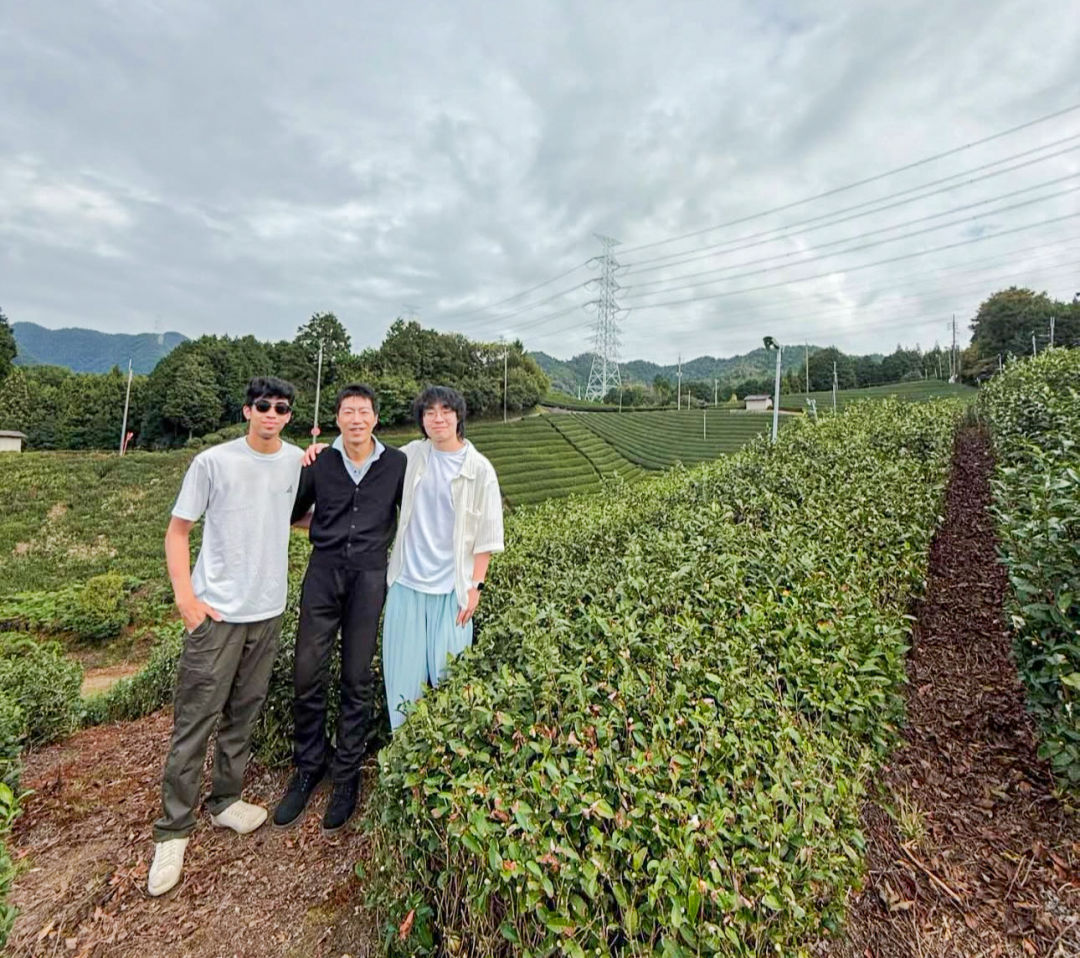
Before opening Project Matcha, Moungvang and Pak traveled to Kyoto to establish a relationship with their matcha supplier. One farmer from the multigenerational tea-growing family is pictured here, though requested not to be named publicly.
With that framework in mind, Moungvang and Pak sampled more than 100 matchas before landing on one they liked: a balance of umami, pleasant bitterness, and not too much of a savory seaweed note. It came from a fourth-generation family farm in Wazuka, a town of about 3,500 in Kyoto, a revered tea growing region that produces about a quarter of Japan’s matcha. Their hearts set, Moungvang and Pak flew to Kyoto. Soon they were observing the traditional tea ceremony in Wazuka, besotted, touring fields of tencha, the unprocessed tea used to make matcha with the farmers (who’ve asked not to be named here), and wondering how they might balance the online hype with the beauty of a tradition that dates to the twelfth century.
“There’s definitely a tension,” Pak told me. While they hope to carry some of what they observed in Kyoto into their café in Portland, he says, “people love seeing the colorful drinks—and of course it tastes good.” As a customer, at least for the moment, the ceremony at Project Matcha is closer to that of waiting in line for a Supreme T-shirt. That’s just a fact of being popular online. The drinks are special and it’s a little bit about the hype—just like everything edible you’d find on the internet and chase into the material world.
“People my age, the younger crowd, like 18 to 30, are all starting to catch up on matcha,” Moungvang says. “And, yo, it just seems like it’s a really early time.” For this wave of conversations around matcha in the US, which sound like early aughts coffee talk, it certainly is a really early time. Pak mentions that Starbucks even upped their matcha quality earlier this year, and notes with a wry smirk, “We saw Dutch Bros recently released their matcha.”
Share this content:


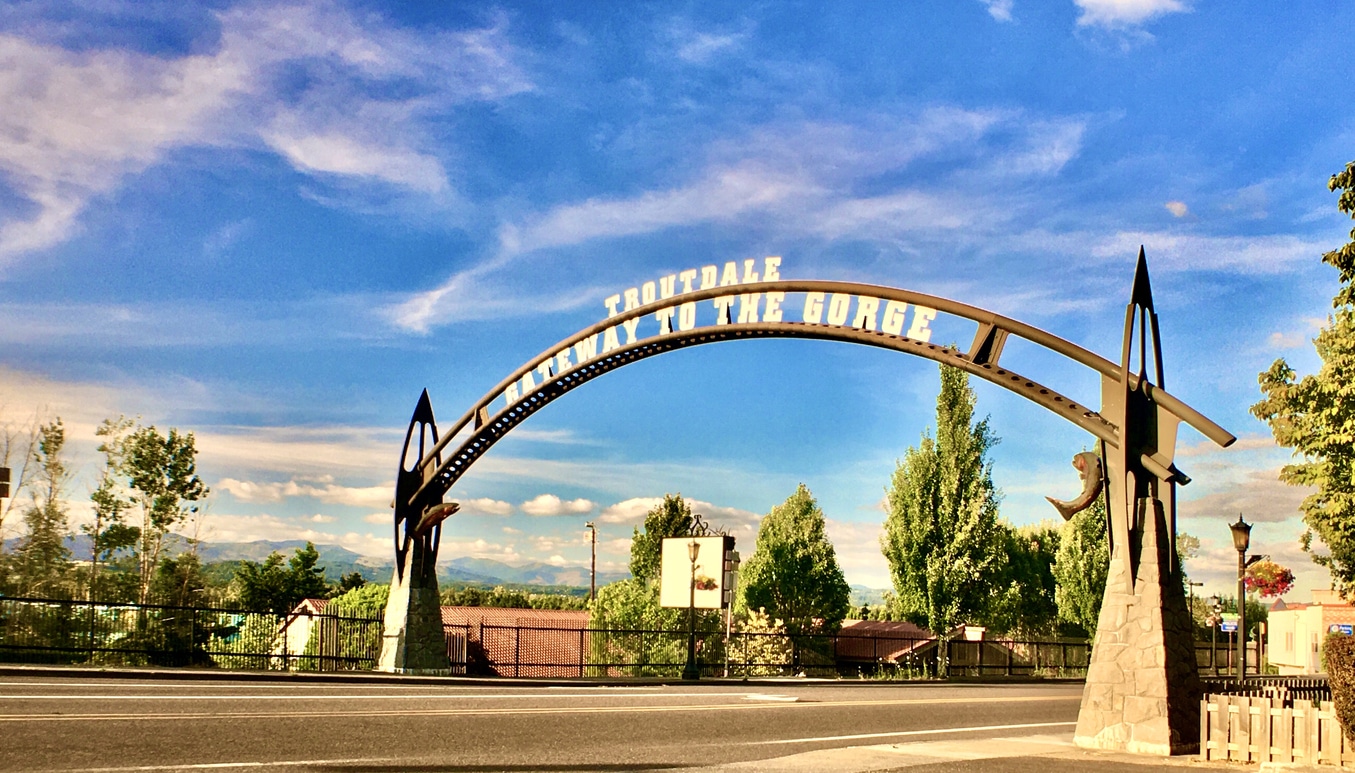
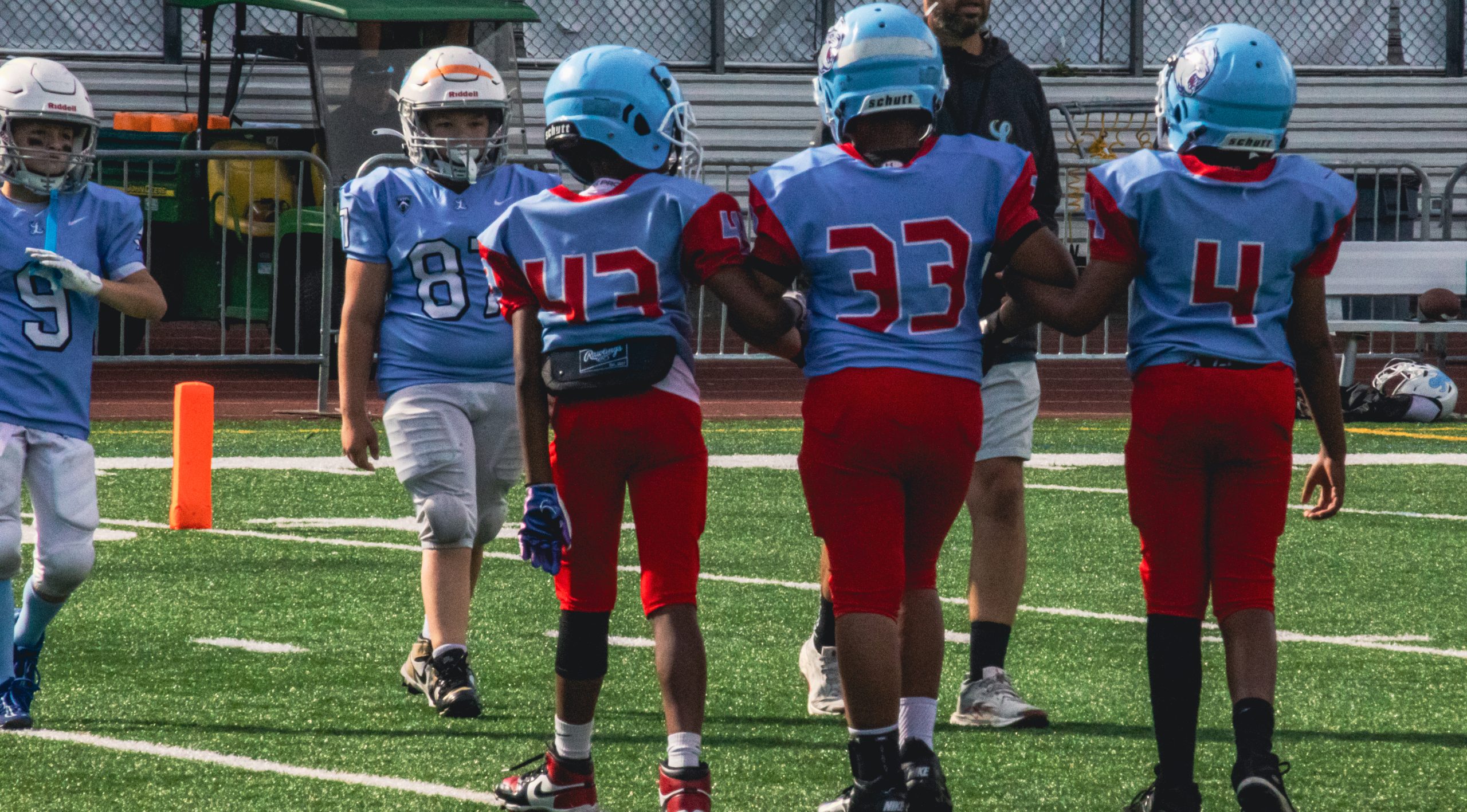








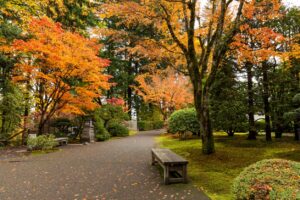
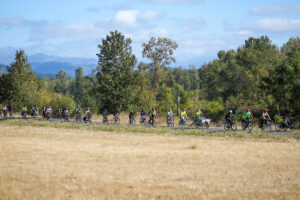
Post Comment